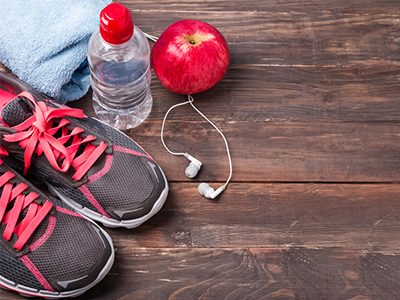
It’s a proven fact that a balanced diet is key to physical and mental well-being. We need nutrients (carbohydrates, fats, proteins, vitamins and minerals), fiber and water to keep our bodies running properly.
That’s why it’s important to follow a series of healthy steps and make an effort to build them into our daily routines. The beginning of a new year is the perfect time to set goals for your health and fitness and work to achieve them. A healthy diet is one of the biggest components in maintaining a healthy lifestyle, so we’ve offered some tips below to help get you started.
1. Follow a varied diet that doesn’t leave out any of the different food groups, since they all have a role to play and the nutrients they provide are vital for our body to work at full potential. For example, carbohydrates and fats give us the necessary energy for our vital functions and physical activity, proteins help build our tissues, and minerals help regulate the body’s functions.
2. Keep cholesterol at bay! Eat healthy, unsaturated fats, which you will find in foods like olive oil and nuts, rather than saturated fats (sausages, full-fat dairy products, etc.) and as much as possible avoid trans fats (mass-produced baked goods, margarine, etc.).
3. Don’t skip meals. You should have a full, varied breakfast (with dairy products, fruit or vegetables and a starch) to start the day firing on all cylinders. It’s best to eat carbohydrates at lunch (to avoid accumulating energy you’re not going to burn) and have a light dinner. And don’t forget to have some fruit or yogurt as mid-morning and afternoon snack.
4. Add fiber to your diet. Don’t forget to eat the recommended five pieces of fruit and vegetables a day, as well as legumes and whole grains. Fiber does not count as a nutrient because it does not act in the body’s internal processes, although it does play a major role in healthy digestion.
5. Drink water. Human beings need water to stay alive so we should drink water regularly throughout the day, even before we feel thirsty. About half a gallon of water a day is enough, given that we also take in water from other foods such as fruits and vegetables.



